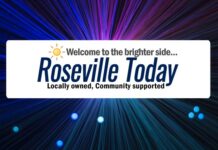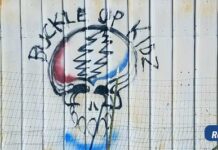Sacramento, Calif. – In a promising finding for research into Huntington’s disease (HD) – the devastating inherited neurodegenerative disorder – a team of UC Davis investigators has identified for the first time a way to use human mesenchymal stem cells (MSCs) to deliver the key brain protein growth factor that is dramatically diminished by Huntington’s disease.
The discovery could be the precursor to developing a successful therapy to treat those who suffer from the disease.
The findings are published in a study online today in the journal Molecular Therapy.
The gene mutation in Huntington’s disease interferes with expression and transport of a brain growth factor, contributing to the death of a selective population of brain cells in an area called the striatum. Striatal brain cell loss causes the devastating characteristics of Huntington’s, including involuntary movements and impaired motor control, cognitive decline and severe behavioral disorders. UC Davis’ success in using the stem cell approach serves as an important stepping stone in potentially obtaining U.S. Food and Drug Administration approval to test the therapy’s safety and efficacy in human patients with the disease.
“For the first time, human stem cells have been successfully used as a platform to deliver brain-derived neurotrophic factor (BDNF), the growth factor that shows great promise for treating Huntington’s disease,” said Vicki Wheelock, principal investigator, clinical professor of neurology and director of the UC Davis HDSA Huntington’s Disease Center of Excellence Clinic. “We must complete additional animal studies before we can apply for regulatory approval to test this therapy in HD patients, but the results we’ve seen using the human cell products in mouse models of the disease are very encouraging.”
About 30,000 people around the country have symptomatic Huntington’s disease. Symptoms typically arise in mid-adulthood, although a juvenile form with an accelerated course occurs in about 10 percent of patients. Patients develop increasingly severe movement disorders, cognitive decline and psychiatric problems, and usually die from complications of the disease. Although medications help alleviate some symptoms, no therapy is available that addresses the underlying genetic defect or offers a cure.
The disease is caused by a mutation in the huntingtin gene, which is passed on in an autosomal dominant manner; each child of an affected person has a 50-percent chance of inheriting Huntington’s. The mutation results in reduced levels of BDNF, which is critically important to the survival and function of neurons. The disease causes the loss of neurons deep in the area of the brain called the striatum, which plays a key role in movement and behavior control.
Although scientists can manufacture BDNF in large quantities in the laboratory, the protein’s short lifespan makes it impractical to use by itself for therapy, and it would be difficult to continually infuse it into the brain where it is needed. An alternative method – delivering a bioengineered virus to a patient so that it continues to manufacture BDNF in the body – is also not an ideal option since the virus could integrate into cells throughout the body and continually make BDNF in inappropriate places.
Mesenchymal stem cells (MSCs) – adult cells found in bone marrow – can be bioengineered to overexpress BDNF and then could potentially be introduced into a patient. MSCs have multiple advantages over viruses: they are not rejected by the immune system even if donated from another person, and they have a limited lifespan within the body. They are also attracted to areas of injury and secrete a variety of other factors that reduce inflammation and enhance cell growth and connections between neurons.
“MSCs act as ‘paramedic delivery trucks’ that move through damaged brain tissue, delivering factors that promote healing and new growth,” said Jan Nolta, co-principal investigator and director of the UC Davis Stem Cell Program and its Institute for Regenerative Cures in Sacramento. “They are an excellent platform for delivering growth factors or other therapeutic agents.”
Other investigators have used MSCs from mice that have been bioengineered to produce BDNF to treat the mouse model of Huntington disease, and shown promising results. But the testing of human MSCs – essential for human therapies – in mouse models was challenging because the mouse immune system quickly destroys the human cells. The UC Davis team is the first to overcome this obstacle by designing a system to immunosuppress mice to permit successful testing of human MSCs as a delivery system for BDNF in mouse models.
The investigators first isolated MSCs from healthy human bone marrow donors, bioengineered them to secrete elevated amounts of BDNF and then increased the population of MSCs. Those cells were then injected directly into the brains of mouse models of Huntington’s, which were bred with a genetic mutation that closely mimics Huntington’s disease in people.
Following implantation, the mice were tested weekly for 6 weeks to detect behavioral changes. Treated mice exhibited significantly reduced anxiety compared with mice given placebo. Anxiety, a hallmark characteristic of Huntington’s disease, is tested in mice by observing them in a large open box: anxious mice stay close to the edges, while normal mice avidly explore the center.
The UC Davis team also found that mice injected with the BDNF-producing MSCs had less degeneration of the striatum compared with the mice injected with placebo. There was also evidence of significantly increased neuron growth activity in mice that received MSCs, compared with control mice. In addition, mice that received BDNF-producing MSCs had up to a 15-percent increased lifespan as compared to the control group.
Wheelock, who co-authored the study, cautioned that the therapy is not yet ready for human clinical trials, which will require more mouse and large-animal studies. Investigators still need to determine appropriate dosages and the duration of the effects.
The study was conducted as part of a five-year, multi-million dollar grant from the California Institute for Regenerative Medicine (CIRM) to develop a cellular therapy for Huntington’s disease. An observational study, PRE-CELL, is already underway with Huntington’s disease patients to measure their rate of disease progression, using periodic neurological testing, magnetic resonance imaging and testing of biomarkers in the blood and cerebrospinal fluid. The data are expected to serve as a baseline for comparison for the same patients in a future planned Phase I safety and tolerability trial.
“Our stem cell-based delivery system for BDNF sets the precedent for this type of therapy in the brain and could potentially be modified for other neurogenerative disorders such as amyotrophic lateral sclerosis, Alzheimer’s disease and Parkinson’s disease,” said Nolta, who is the senior author of the study. “The findings in this study are key to moving this promising therapy forward.”
The article is titled “Human mesenchymal stem cells genetically engineered to overexpress brain-derived neurotrophic factor improve outcomes in Huntington’s disease mouse models.”
Other study authors from UC Davis’ Stem Cell Program and Institute for Regenerative Cures in Sacramento are Kari Pollock, Heather Dahlenburg, Haley Nelson, Kyle Fink, Whitney Cary, Kyle Hendrix, Geralyn Annett, Audrey Torrest, Peter Deng, Josh Gutierrez, Catherine Nacey, Karen Pepper, Stefanos Kalomoiris, Johnathon D. Anderson, Jeannine McGee, William Gruenloh, Brian Fury and Gerhard Bauer. In addition, authors Alexandra Duffy, assistant professor of clinical neurology, and Teresa Tempkin, nurse practitioner, are from the UC Davis Department of Neurology.
This work was supported by the California Institute for Regenerative Medicine (CIRM DR2A- 05415), National Institute of Health Director’s transformative award (R01GM099688), training programs NSF GRFP 2011116000, NIH T32-GM008799, NSF GROW 201111600, T32-HL086350, the CIRM Bridges training program TB1- 01184, a National Institute of Health National Research Service Award Postdoctoral Fellowship F32NS090722, a Stewart’s and Dake Family Gift, and philanthropic donors from the HD community, including the Roberson family and Team KJ.
(21+ years strong)
Welcome to the brighter side!
Get in front of local customers! 24/7 (365)





















